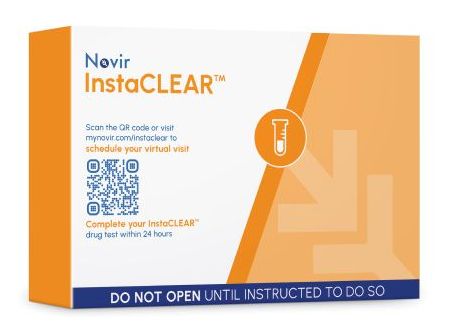There are many reasons to put your drug-free workplace policy in writing. Here are some substance abuse policy considerations:
- Regulations, state drug-free workplace programs, specific contracts, or insurance carriers may require a written policy.
- This policy serves as a record of your organization’s commitment to maintaining a safe, healthy, and productive workplace.
- In case of a challenge, documented policies can protect employers from certain employee claims.
- Having a clear, written policy also makes it easier to communicate expectations to employees, supervisors, and other stakeholders.
Substance Abuse Policy Considerations – Statement of Purpose
The statement of purpose should clearly outline the organization’s goals and intentions for the substance policy. Define substance abuse, and explain the reasons behind developing the policy.
For example, the organization may have developed it through meetings with employees representing diverse workforce segments. The union may have cooperated in shaping the policy. Legal counsel or an insurance carrier may have contributed to its creation. The organization may have responded to concerns about new legislation or increasing substance abuse reports in the news. If applicable, the policy may aim to meet specific legal and regulatory requirements. Whatever the case, always include a Statement of Purpose.
If any employees are covered by DOT regulations, you will need to address the specific requirements of each DOT agency. For example, there are 12 points that must be addressed for a policy to comply with FMCSA requirements. Read them in §382.601.
You may want to emphasize:
-
The policy has immediate objectives, such as complying with drug-free workplace regulations (if applicable). It also aims to prevent drug-related workplace accidents, illnesses, absenteeism, and performance problems.
-
A key long-term goal is to protect and improve employee health, safety, and productivity. The policy helps address workplace alcohol and drug misuse.
-
Ensuring the health and safety of all employees, customers, and the public remains a top priority. The policy supports a safer work environment.
-
Employers implement the policy to safeguard assets from theft and destruction. It also helps protect trade secrets.
-
Maintaining product quality and upholding company integrity and reputation play a crucial role. The policy reinforces these commitments.
-
Federal, state, or local laws may require compliance with the Drug-Free Workplace Act of 1988. Employers must adhere to all applicable regulations.
Key Components of a Drug-Free Workplace Policy
- Any drug-free workplace laws and regulations with which the organization comply
- Organization’s definition of substance abuse?
- What employee behaviors are expected?
- What substances and behaviors are prohibited?
- Who is covered by the policy?
- If safety is a goal, do your job descriptions describe safety sensitive positions?
- Non Regulated vs. Regulated employees? DOT, FMCSA, FRA, FTA, PHMSA, FAA
- When does the policy apply? During work hours only. During organization-sponsored events after normal business hours?
- Where does the policy apply? In the workplace while workers are on duty? Outside the workplace while they are on duty or on call? When are remote workers considered subject to policy requirements? How about when employees are in organization-owned vehicles while they are off duty?
- Who is responsible for carrying out and enforcing the policy?
- How is the policy communicated to employees?
Roles and Responsibilities in Policy Management
- Who is the DER? The Designated Employer Representative is the person designated by the employer to answer policy and program questions. The DER is the liaison with all drug and alcohol testing service agents (third party administrator, clinic, MRO and laboratory), employees and company. The DER is the main contact person and go-toperson as it relates to the management of the employer’s drug testing program. Employees must be able to reach out to an authorized person should they have any questions regarding a company’sprogram.
- Medical Review Officer. Make sure your provider uses one.
- Will the policy include testing for alcohol?
- Do any union contracts have a say in what you can have in your policy?
- Prohibited behavior: impairment, possession of drugs or alcohol in lockers, vehicles, etc.
- Are employees required to notify supervisors of drug-related convictions?
- Are employees required to inform employer if they are prescribed any medication that could adversely affect their ability to work safely?
- Are employer searches of lockers, desks, company vehicles addressed?
Defining Testing Scenarios and Policy Enforcement
- Reasons for drug and alcohol testing: Pre-employment, Random, Post Accident, Suspicion, Periodic.
- Consequences for violating the policy
- Employee confidentiality
- Drug panel: What drugs are being tested. Saying merely “illegal drugs” is not specific enough. Neither is “Five panel drug test.”
- Specimen type(s) – Do you have the flexibility to test urine, hair and oral fluid specimens?
- Second/Last Chance? Can an employee keep her job after a failed drug or alcohol test by going through EAP and a treatment program?
- Do you have an EAP? If not, do you have a plan for referrals for treatment?
- What qualifies as post accident? DOT defines for regulated employees. Non-regulated employers can define. Understand OSHA rules on post accident testing.
- Refusal to test– define what it is and consequences.
- Random testing?
- What is your policy on negative dilute specimens? Is it different for pre-employment vs. random tests?
- Policy acknowledgement form
- If this is a new program, will you test all existing employees? Effective date of policy (30, 60 days?)
Need a policy? We can help.


